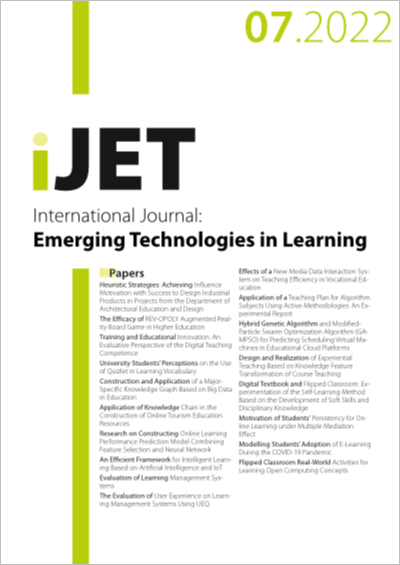Application of a Teaching Plan for Algorithm Subjects Using Active Methodologies: An Experimental Report
DOI:
https://doi.org/10.3991/ijet.v17i07.28733Keywords:
active methodologies, teaching plan, algorithmsAbstract
Computer programming subjects have high failure rates, their contents are of great importance for the formation of undergraduate students, however their learning is considered challenging. There are several studies in the specialized literature that investigate the use of types of intervention that can improve the learning of contents, most of them are focused on introductory subjects such as algorithms, considering that it provides the basis for the development of necessary skills and competences for the computer programming. By establishing a solid foundation in the learning of programming contents, through the algorithms subject, it is expected that students will have less difficulty in absorbing the knowledge needed to deepen their programming skills in subsequent subjects. In this sense, the use of approaches that promote active learning on the part of students in algorithmic subjects stand out in the specialized literature, in order to increase their engagement and awaken their interest in the contents covered, making them protagonists of their learning. Thus, the objective of this work is to discuss and analyze the results of an experiment that consisted in the application of a teaching plan that makes use of multiple active methodologies (Virtual Learning Environments, Coding Dojo, Gamification, Problem Based Learning – PBL, Flipped Classroom and Serious Games) in an algorithms subject. We sought to evaluate the learning gains of the proposed approach compared to teaching using the traditional teaching method. A statistical analysis was performed using the Student-t two-tailed approach for independent samples, which showed significant statistical gains when using the proposed approach.
Downloads
Published
How to Cite
Issue
Section
License
Copyright (c) 2022 Fabrício Wickey da Silva Garcia, Sandro Ronaldo Bezerra Oliveira, Elielton da Costa Carvalho

This work is licensed under a Creative Commons Attribution 4.0 International License.



